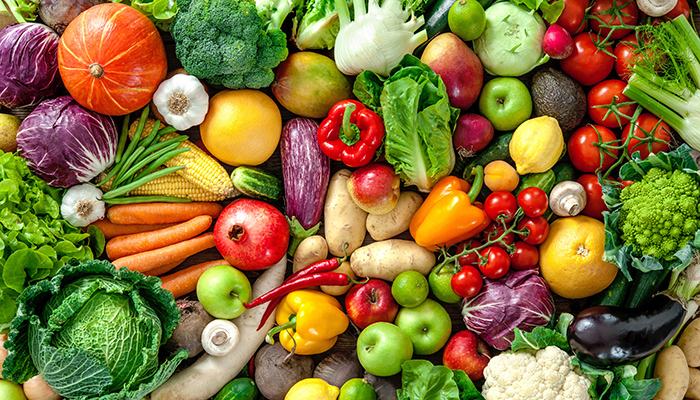There are numerous benefits to ensuring we consume plenty of fiber in our daily diets = from blood glucose regulation to weight management to cholesterol reduction and cancer prevention. And these are just a few of the benefits. Experts recommend 25 – 35 grams of fiber per day, ideally from whole and unprocessed foods – beans, legumes, whole grains, fruits and vegetable – you already know this. A great way to get 48% of your daily amount of fiber is with NuGo Fiber d’Lish they are entirely natural and made up of 6 grains & seeds. So, if fiber is so important, should we consider consuming more than the recommended amount?
Is it possible to eat too much fiber?
The short answer is, yes, eating too much fiber is possible. The good news – your body will share some warning signs if this happens to be the case. Cramping, bloating and gas will signal the need for a shift. Too much fiber combined with too little water can result in another warning sign – constipation. It’s important to pay attention to this symptom as severe and unresolved constipation could lead to intestinal blockage. Another downfall of excess fiber is that it decreases the body’s ability to absorb vitamins and minerals.
How much fiber is too much?
Eating upward of 50 – 60 grams of fiber per day may lead to some of the symptoms mentioned above. If you take fiber supplements, be aware that supplements can easily lead to excess, especially for children and older adults. The safest and healthiest way to add fiber to your diet is from food.
Increase fiber slowly
If you are aiming to increase the fiber in your diet, you can prevent uncomfortable side effects. Consider these three basic guidelines:
- Choose food for fiber, not supplements. In addition to reducing potential side effects from supplements, fiber-filled foods contain other beneficial nutrients that you can’t get from supplements. All of these nutrients, along with fiber, work together to provide various health benefits. In addition to the health benefits, some foods like Fiber d’Lish also taste like delicious treats.
- Increase fiber slowly. Begin by adding more fresh fruits and vegetables in the first week. In the second week, make another change such as swapping out refined breads and cereals for their whole grain counterparts, or adding beans to your salads. In the third week, make another change.
- Drink plenty of water. Proper hydration is essential for fiber to be beneficial.
Pay attention to your body. If you feel the effects of too much fiber too quickly – gas, cramping, or constipation – consider this a signal to take it slower, and pay attention to your water intake. If these symptoms continue, follow-up with your physician.

Anne Marie Kuchera, MS, MA, RD, LPC is a registered dietitian, and both a licensed nutritionist and licensed professional counselor. She manages community-based obesity prevention and preventive health and wellness initiatives through Children’s Hospital of Pittsburgh of UPMC.

